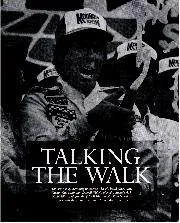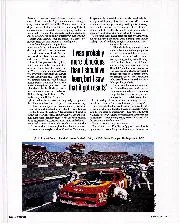Although team owner Chip Ganassi optimistically suggested before the start of the 2021 season that Johnson might “squeak a win out,” Johnson himself was far more measured about his expectations. But the results have been far more nightmarish than he could have imagined.
During the first seven road course and street circuit races – ironically, Johnson is forgoing ovals – he’s been the slowest or second-slowest guy on the track during practice and qualifying, often posting times that are more than two seconds off the pole. His race pace has been slightly better, but several stints have been torpedoed by lurid spins, and he hasn’t finished a single event on the lead lap. The haters and trolls, predictably, have been having a field day.
I’m not sure what to think as I watch Johnson respectfully drive off-line to obey the blue flags and allow the fast guys to sweep past him. I know he’s not a rich kid who’s got a ride only because daddy paid for it. And I love the fact that his IndyCar experiment is a labor of love rather than an ego trip. “He doesn’t need the money,” says retired road-racing ace Scott Pruett, who was hired to coach him a few months ago. “He doesn’t need the accolades. He’s doing this because of his passion for driving.”
“Johnson’s not in IndyCar on merit and clearly wouldn’t be part of Ganassi if he hadn’t delivered huge sponsorship”
Which is cool. But at the same time, he’s not in IndyCar on merit, and he clearly wouldn’t be part of Ganassi’s super team if he hadn’t delivered a huge sponsorship deal with Carvana, an online retailer aiming to become the Amazon of the used-car market.
That said, this sponsorship is good not only for Johnson and Ganassi but also for IndyCar as a whole, which benefits from Carvana ads during race broadcasts. Another plus: Johnson’s celebrity has brought new eyeballs to the series, which has long struggled to attract fans despite some of the most compelling racing on the planet. So that’s a win-win.






